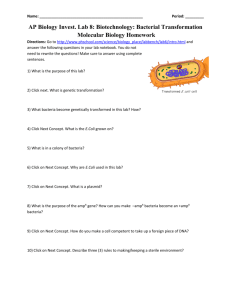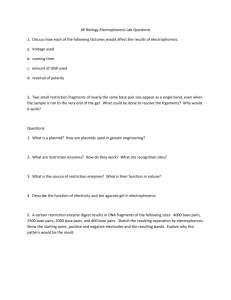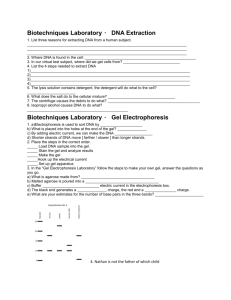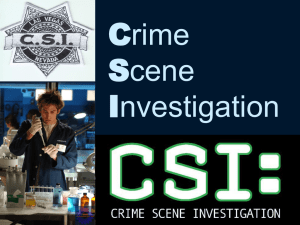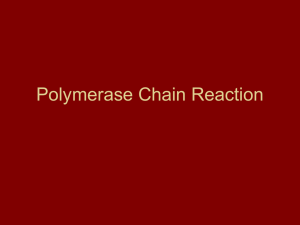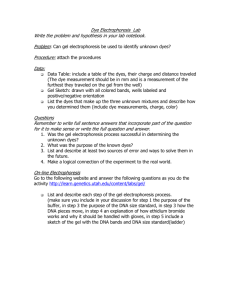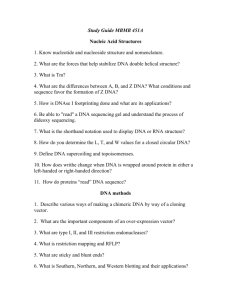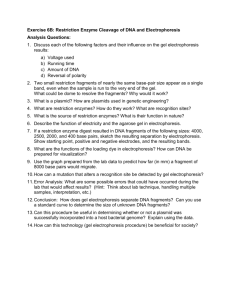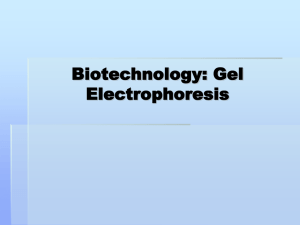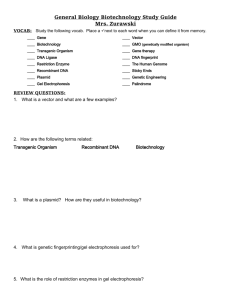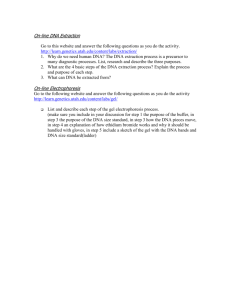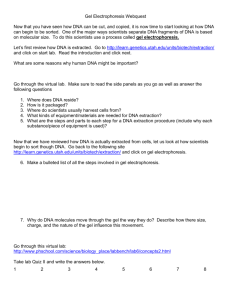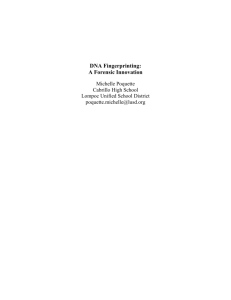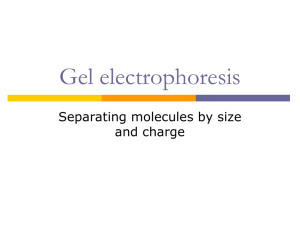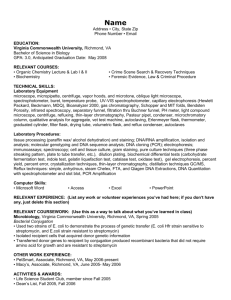File - Maya`s 2012 Portfolio
advertisement
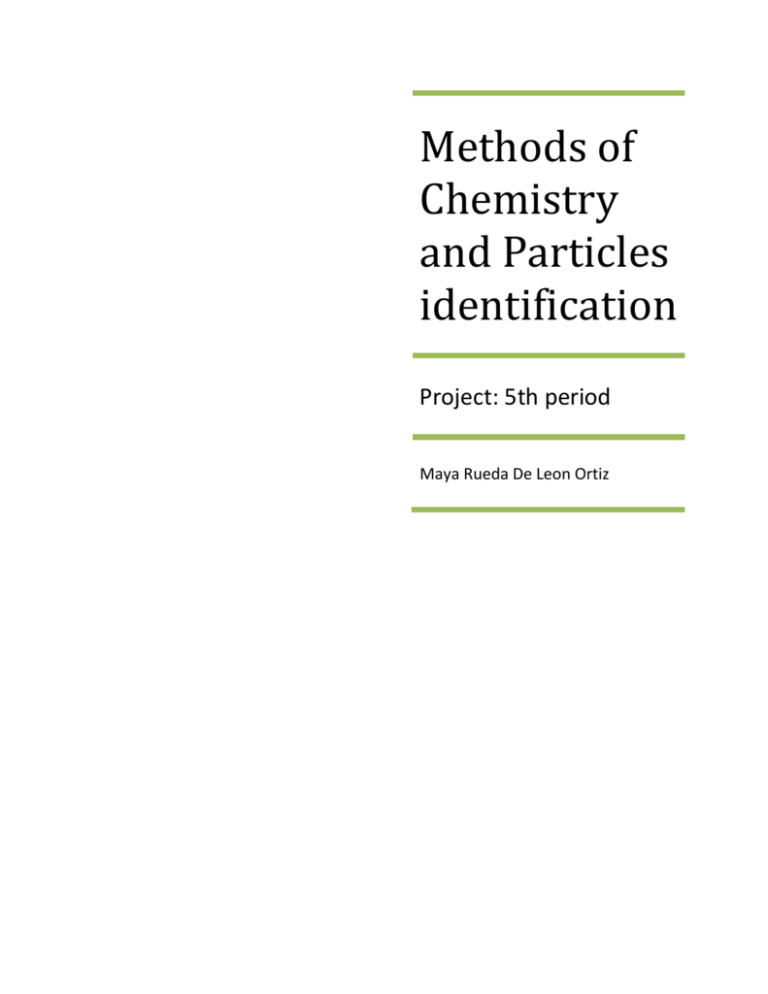
Methods of Chemistry and Particles identification Project: 5th period Maya Rueda De Leon Ortiz Liquid Chromatography Chromatography is a method that helps separate compounds and mixtures. It starts with columns that contain a fritted bottom. Next one compound is place inside the column, which will be the stationary phase. Then another compound or mixture is place into the column. This second compound will be the one that will be separated. This stage is called the mobile phase. Once the liquids come in contact, the difference in the two will go down the column and thus separate the compound. Mikhail S. Tswett, a Russian scientist, invented this process. His experiment was over a plant solvent he obtained and followed the basic procedures. The results of his experiments gave a new method for identifying chemicals. Today this method is used in laboratories around the world. On example of the use of this method in the world is in drug testing, for samples of urine. Gel Electrophoresis Gel electrophoresis is a method that helps separate and sort DNA sizes. For example a test tube full of different strands and sizes of DNA. How is it possible to separate the different sizes in order to compare them? The gel like substance is get ( a filter that separates cells like a sponge like thing) and drops of the DNA into tiny holes that are inserted on top. Next an electrical Current that makes the DNA move is add. This part is called Electrophoresis. The result would be the shortest strands of DNA at the bottom and the larger ones on top. The smaller the strand the faster it moves. Today, Scientist uses this method to purify DNA. An example would be separating the DNA in samples in hospital. Works cited 1. “GEL ELECTROPHORESIS VIRTUAL LAB” Learn.Gentic.n.d.Web. March 28, 2012 <http://www.waters.com/waters/nav.htm?cid=10048919&locale=en_US> 2. “Liquid Chromatography (LC)” The Chemistry Hypermedia Project, March 3, 2012. Web. March 28, 2012. < http://www.files.chem.vt.edu/chem-ed/sep/lc/lc.html> 3. “What Is HPLC (High Performance Liquid Chromatography)?” Waters: the science of what is possible. n.d. Web. March 28, 2012 < http://learn.genetics.utah.edu/content/labs/gel/>
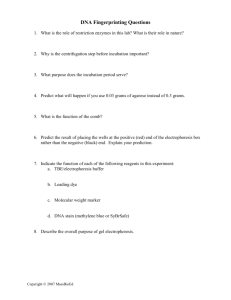
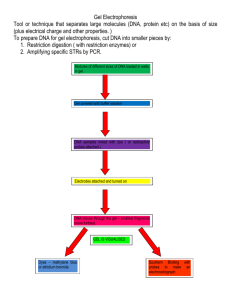
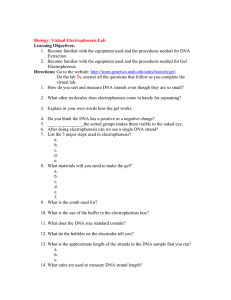
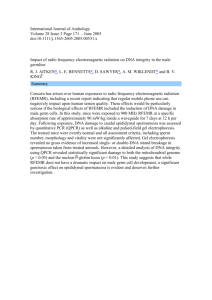
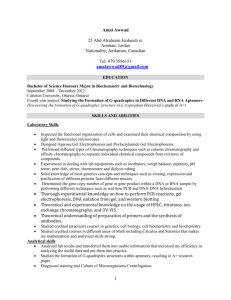
![Student Objectives [PA Standards]](http://s3.studylib.net/store/data/006630549_1-750e3ff6182968404793bd7a6bb8de86-300x300.png)
